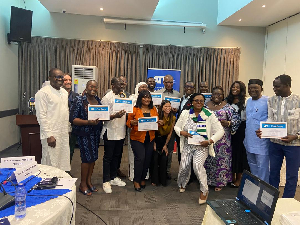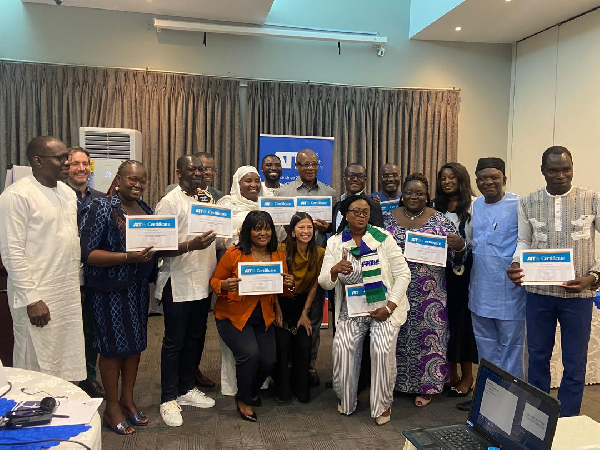 Some of the participants of the programme
Some of the participants of the programme
The National Commission on Small Arms and Light Weapons (NACSA) has called for the passage of the long-overdue firearms control law, citing the urgent need to update Ghana’s outdated legal framework, which has remained unchanged for over five decades.
According to earlier reports by the Commission, the number of small arms in circulation surged from 240,000 in 2004 to 2.3 million by 2014—the last time a baseline assessment was conducted.
Alarmingly, only about 1.2 million of these weapons were legally acquired or registered.
Dr Adam Adamu Alhassan Bonaa, Acting Executive Secretary of NACSA, has warned that Ghana’s current laws governing arms dealership and regulation are obsolete and ill-equipped to address modern threats, including the rise of 3D-printed weapons and online arms transactions.
Speaking at the closing session of a five-day international workshop on the Arms Trade Treaty (ATT) in Accra on May 9, 2025, he revealed that a draft firearms bill, under development for the past eight years, is expected to be laid before Parliament this year.
“The constitution itself is about 32 years old and under review, but the law guiding firearms is over 50 years old. We cannot be dealing with advanced threats using outdated laws,” he stated.
Dr Bonaa cautioned that Ghana’s failure to pass a modern firearms law undermines efforts to control arms diversion, fake end-user certificates, and unauthorized brokerage—issues that continue to fuel insecurity in parts of West Africa.
The Commission believes that passing the new law will not only strengthen Ghana’s compliance with international treaties but also reinforce its reputation as an “oasis of peace” in a volatile sub-region.
Carina Solmirano, Head of the ATT Secretariat, highlighted the importance of empowering West African nations with the skills necessary to implement the Arms Trade Treaty effectively.
She noted that the European Union has supported the initiative to ensure participants receive training that equips them with practical expertise in arms control.
Participants, including representatives from Ghana, Cameroon, and The Gambia, expressed appreciation for the workshop, emphasising its impact on their countries’ security frameworks.
Eugene Nyudine Ngalim from Cameroon stated that the training would go a long way in helping regional security agencies combat illicit arms proliferation.
Rohie Bittaye Darboe from The Gambia praised the workshop’s insightful approach, noting that it would strengthen efforts in regulating illegal weapons across the region.
The workshop is supported by the European Union, which has been a major partner in global efforts to improve arms control and promote peace and security through the ATT framework.

AM/KA
#TheAdutwumFactor! Watch as Yaw Osei Adutwum declares intent to contest NPP flagbearership for 2028
